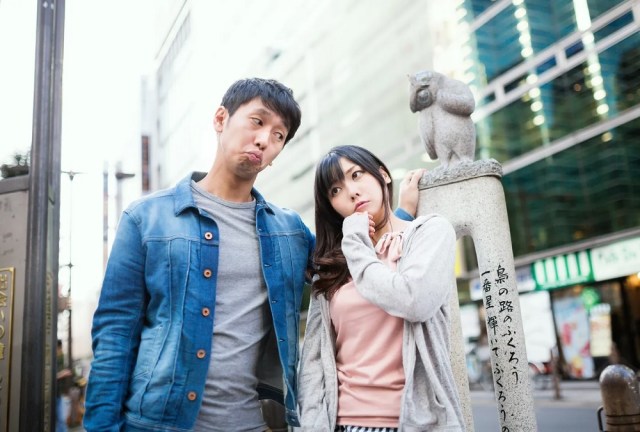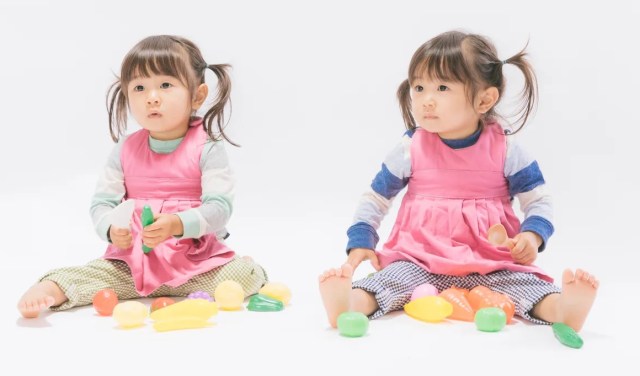
Number of children Japanese women want also drops to lowest ever in latest iteration of government study.
Every five years the Japanese government’s National Institute of Population and Social Security Research conducts a survey on attitudes about marriage and having children. The most recent study’s results have just been released and enthusiasm for both of those family-forming activities has cooled compared to the last iteration.
Responses were collected from 7,862 single men and women between the ages of 18 and 34. When asked how they feel about the idea of getting married, 17.3 percent of the men and 14.6 percent of the women replied “I have no intention of ever getting married,” increases of 5.3 and 6.6 percent over the previous poll. On the other end of the spectrum, 81.4 percent of the men and 84.3 percent of the women said “I want to get married someday,” both of which were the lowest numbers since the survey was first conducted in 1982.
The most dramatic change, though, came when respondents were asked about having kids after marriage. 55 percent of the men and 36.6 percent of the women felt that “If you get married, you should then have kids,” representing a drop of approximately 20 percent for men and roughly 30 percent for women compared to just five years ago. Even those who do want kids want fewer of them. When participants who do have a romantic partner they’re thinking about marrying were asked how many children they hope to have, the average for men was 1.91, down from 1.82 in last study, and for women it was 1.79, down from 2.02, marking the first time in the survey’s history for the average desired number of children to fall below 2.
▼ Too many kids, according to the survey average
Though marriages and births are both on continuing downward trends in Japan, there are a couple of things worth bearing in mind that make the results a little more complex than just “Japanese people aren’t interested in romance and making babies.” As mentioned above, the survey is conducted once every five years, but the results being announced now were actually collected in 2021, the first full year of the pandemic in Japan. Considering that vaccines for the coronavirus didn’t become widely available until the second half of 2021, it’s understandable that even fewer people than usual would have been fantasizing about getting married, seeing as how many single people’s love lives were put on hold during extensive social distancing initiatives.
The pandemic likely had a similar effect on the prospect of having kids, and especially the idea of having many kids. Japanese homes tend to be small, without a whole lot of extra space designed into the floorplan. In 2021 working from home had become the new normal for many people, but the sudden shift meant that many people’s “offices” were a makeshift workspace crammed into a corner of their living room. With space in Japanese homes at even more of a premium than usual, the idea of adding multiple kids into the picture, perhaps attending class remotely from home themselves, probably wasn’t particularly appealing, or at least was less appealing than it will be once families return to a lifestyle where not everyone is inside the home almost all day long.
Source: Asahi Shimbun Digital via Yahoo! Japan News via Otakomu, Yahoo! Japan News/Tele Asa News
Top image: Pakutaso
Insert image: Pakutaso
● Want to hear about SoraNews24’s latest articles as soon as they’re published? Follow us on Facebook and Twitter!


 Most of Japan’s new adults hope to fall in love and get married, according to recent survey
Most of Japan’s new adults hope to fall in love and get married, according to recent survey Survey shows that Japanese couples are trying to conceive earlier
Survey shows that Japanese couples are trying to conceive earlier How many married people with children in Japan admit to cheating on their spouse? Survey says…
How many married people with children in Japan admit to cheating on their spouse? Survey says… Should people in Japan be allowed to keep their surnames after getting married, survey asks
Should people in Japan be allowed to keep their surnames after getting married, survey asks Should married couples in Japan be allowed to have different family names? Survey investigates
Should married couples in Japan be allowed to have different family names? Survey investigates Japan Extreme Budget Travel! A trip from Tokyo to Izumo for just 30,000 yen [Part 2]
Japan Extreme Budget Travel! A trip from Tokyo to Izumo for just 30,000 yen [Part 2] Japan’s craziest burger chain takes menchi katsu to new extreme levels
Japan’s craziest burger chain takes menchi katsu to new extreme levels Defibrillator toys from Japanese capsule machines are so realistic they might save a life
Defibrillator toys from Japanese capsule machines are so realistic they might save a life Can you eat lunch in Tokyo for less than 500 yen?
Can you eat lunch in Tokyo for less than 500 yen? We find “Yakushima Soba” on a mysterious menu at a souvenir shop at Yakushima Island’s airport
We find “Yakushima Soba” on a mysterious menu at a souvenir shop at Yakushima Island’s airport Tokyo Skytree turns pink for the cherry blossom season
Tokyo Skytree turns pink for the cherry blossom season “Bumping men” are a uniquely Japanese class of criminals that are hard to deal with
“Bumping men” are a uniquely Japanese class of criminals that are hard to deal with Anime’s 10 biggest male perverts, as chosen by Japanese fans
Anime’s 10 biggest male perverts, as chosen by Japanese fans How good is this popular wooden onigiri mould, made by a Japanese rice specialist?
How good is this popular wooden onigiri mould, made by a Japanese rice specialist? Real-life Demon Slayer? A visit to the legendary split boulder of Haban Shrine【Photos】
Real-life Demon Slayer? A visit to the legendary split boulder of Haban Shrine【Photos】 Starbucks Japan releases first-ever Hinamatsuri Girls’ Day Frappuccino
Starbucks Japan releases first-ever Hinamatsuri Girls’ Day Frappuccino Japanese restaurant chain serves Dragon Ball donuts and Senzu Beans this spring
Japanese restaurant chain serves Dragon Ball donuts and Senzu Beans this spring Highest Starbucks in Japan set to open this spring in the Tokyo sky
Highest Starbucks in Japan set to open this spring in the Tokyo sky Japan Extreme Budget Travel! A trip from Tokyo to Izumo for just 30,000 yen [Part 1]
Japan Extreme Budget Travel! A trip from Tokyo to Izumo for just 30,000 yen [Part 1] Yakuzen ramen restaurant in Tokyo is very different to a yakuza ramen restaurant
Yakuzen ramen restaurant in Tokyo is very different to a yakuza ramen restaurant Japan has only one airport named after a samurai, so let’s check out Kochi Ryoma【Photos】
Japan has only one airport named after a samurai, so let’s check out Kochi Ryoma【Photos】 Japanese drugstore sells onigiri at pre-stupid era prices, but how do they compare to 7-Eleven?
Japanese drugstore sells onigiri at pre-stupid era prices, but how do they compare to 7-Eleven? Adorable Totoro acorn key holders come with a special guest hidden inside[Photos]
Adorable Totoro acorn key holders come with a special guest hidden inside[Photos] Japan’s newest Shinkansen has no seats…or passengers [Video]
Japan’s newest Shinkansen has no seats…or passengers [Video] Starbucks Japan releases new sakura goods and drinkware for cherry blossom season 2026
Starbucks Japan releases new sakura goods and drinkware for cherry blossom season 2026 Foreigners accounting for over 80 percent of off-course skiers needing rescue in Japan’s Hokkaido
Foreigners accounting for over 80 percent of off-course skiers needing rescue in Japan’s Hokkaido Super-salty pizza sends six kids to the hospital in Japan, linguistics blamed
Super-salty pizza sends six kids to the hospital in Japan, linguistics blamed Starbucks Japan unveils new sakura Frappuccino for cherry blossom season 2026
Starbucks Japan unveils new sakura Frappuccino for cherry blossom season 2026 Foreign tourists in Japan will get free Shinkansen tickets to promote regional tourism
Foreign tourists in Japan will get free Shinkansen tickets to promote regional tourism The 10 most annoying things foreign tourists do on Japanese trains, according to locals
The 10 most annoying things foreign tourists do on Japanese trains, according to locals Take a trip to Japan’s Dododo Land, the most irritating place on Earth
Take a trip to Japan’s Dododo Land, the most irritating place on Earth Naruto and Converse team up for new line of shinobi sneakers[Photos]
Naruto and Converse team up for new line of shinobi sneakers[Photos] Is China’s don’t-go-to-Japan warning affecting the lines at a popular Tokyo gyukatsu restaurant?
Is China’s don’t-go-to-Japan warning affecting the lines at a popular Tokyo gyukatsu restaurant? Survey asks foreign tourists what bothered them in Japan, more than half gave same answer
Survey asks foreign tourists what bothered them in Japan, more than half gave same answer Japan’s human washing machines will go on sale to general public, demos to be held in Tokyo
Japan’s human washing machines will go on sale to general public, demos to be held in Tokyo Starbucks Japan releases new drinkware and goods for Valentine’s Day
Starbucks Japan releases new drinkware and goods for Valentine’s Day We deeply regret going into this tunnel on our walk in the mountains of Japan
We deeply regret going into this tunnel on our walk in the mountains of Japan Studio Ghibli releases Kodama forest spirits from Princess Mononoke to light up your home
Studio Ghibli releases Kodama forest spirits from Princess Mononoke to light up your home Major Japanese hotel chain says reservations via overseas booking sites may not be valid
Major Japanese hotel chain says reservations via overseas booking sites may not be valid Put sesame oil in your coffee? Japanese maker says it’s the best way to start your day【Taste test】
Put sesame oil in your coffee? Japanese maker says it’s the best way to start your day【Taste test】 No more using real katana for tourism activities, Japan’s National Police Agency says
No more using real katana for tourism activities, Japan’s National Police Agency says Young Japanese adults show lowest dating experience level yet in annual survey
Young Japanese adults show lowest dating experience level yet in annual survey Rich and bald or handsome and poor? Survey asks Japanese women who’d they’d rather marry
Rich and bald or handsome and poor? Survey asks Japanese women who’d they’d rather marry Japanese women sound off on their minimum height requirements for a husband【Survey】
Japanese women sound off on their minimum height requirements for a husband【Survey】 Over half of Japanese people in survey only dated three or fewer people before getting married
Over half of Japanese people in survey only dated three or fewer people before getting married Married Japanese men and women rank the things they miss most about single life
Married Japanese men and women rank the things they miss most about single life What jobs would make a woman an attractive wife to Japanese men?【Survey】
What jobs would make a woman an attractive wife to Japanese men?【Survey】 Do Japanese superfans really want to marry their favorite idol?【Survey】
Do Japanese superfans really want to marry their favorite idol?【Survey】 Survey shows more Japanese married men, single Japanese women cheating on their romantic partners
Survey shows more Japanese married men, single Japanese women cheating on their romantic partners Japan’s wedding gift etiquette rule is too expensive, young people in survey say
Japan’s wedding gift etiquette rule is too expensive, young people in survey say Is the ideal spouse someone who’s your best friend or your war buddy? Japanese singles sound off
Is the ideal spouse someone who’s your best friend or your war buddy? Japanese singles sound off Survey reveals 55 percent of women in Japan wouldn’t marry a divorced man
Survey reveals 55 percent of women in Japan wouldn’t marry a divorced man Majority of Japanese women in survey regret marrying their husband, but that’s only half the story
Majority of Japanese women in survey regret marrying their husband, but that’s only half the story Overweight, bald, or cheap? Japanese women pick the man they’d least want to marry in survey
Overweight, bald, or cheap? Japanese women pick the man they’d least want to marry in survey Japanese women show continuing decline in how much they expect a husband to earn in survey
Japanese women show continuing decline in how much they expect a husband to earn in survey Four moments when Japan’s single men are glad they’re not married
Four moments when Japan’s single men are glad they’re not married